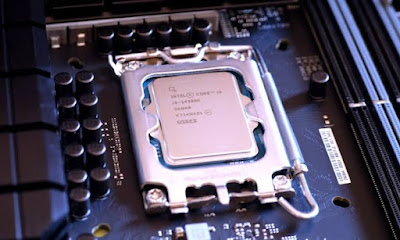Intel says it doesn't currently have a final patch for its 13th and 14th Gen Intel Core i9 "Raptor Lake" and "Raptor Lake S" chips, despite what you may have seen earlier today. For months, Intel's top-tier desktop gaming processors have had an odd tendency to periodically cause games to crash.
According to a statement from Intel spokesperson Thomas Hannaford, "In contrast to recent media reports, Intel has not confirmed root cause and is continuing, with its partners, to investigate user reports regarding instability issues on unlocked Intel Core 13th and 14th generation (K/KF/KS) desktop processors." It goes on: "While looking into the instability concerns, Intel found an eTVB bug that is fixed by the microcode change mentioned in news reports. Although it might be a contributing factor, this problem is not the main source of instability.
Leaked internal Intel documents that Igor's Lab was able to obtain earlier today are mentioned in Intel's official statement, which also partially confirms them. According to those documents, Intel's processors have been inadvertently overclocking their own cores through a function known as Enhanced Thermal Velocity Boost (eTVB), even though they ought to have recognized that doing so would be dangerous given their operating temperatures.
The leaked document said, "Root cause is an incorrect value in a microcode algorithm associated with the eTVB feature." Although Intel acknowledges that eTVB may have contributed to the issue, it does not appear to be the "root cause" of the whole problem.












No comments